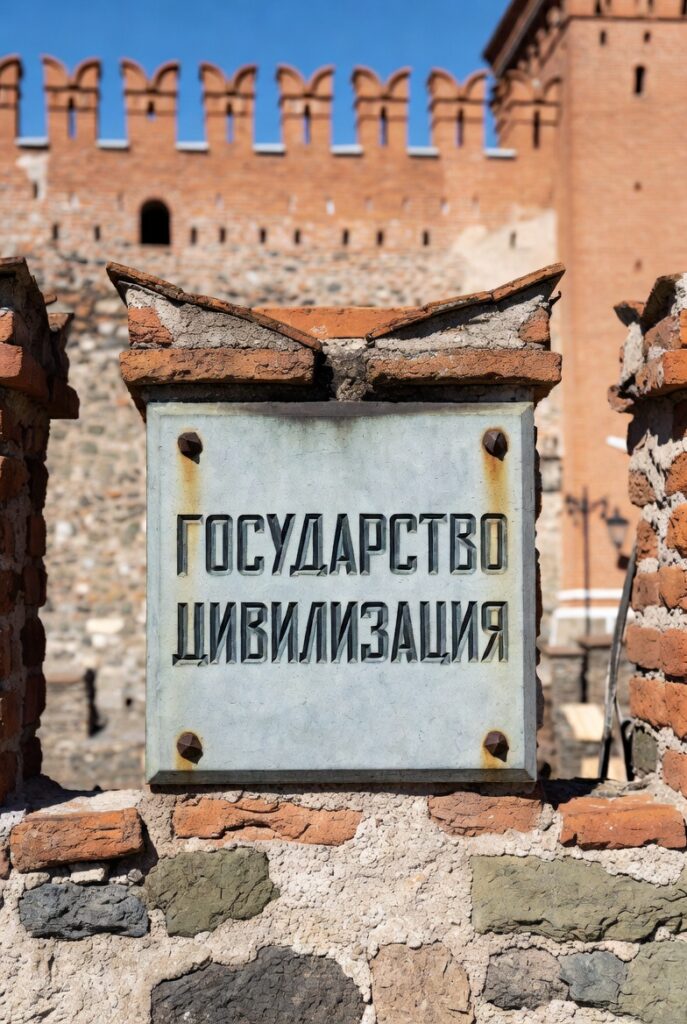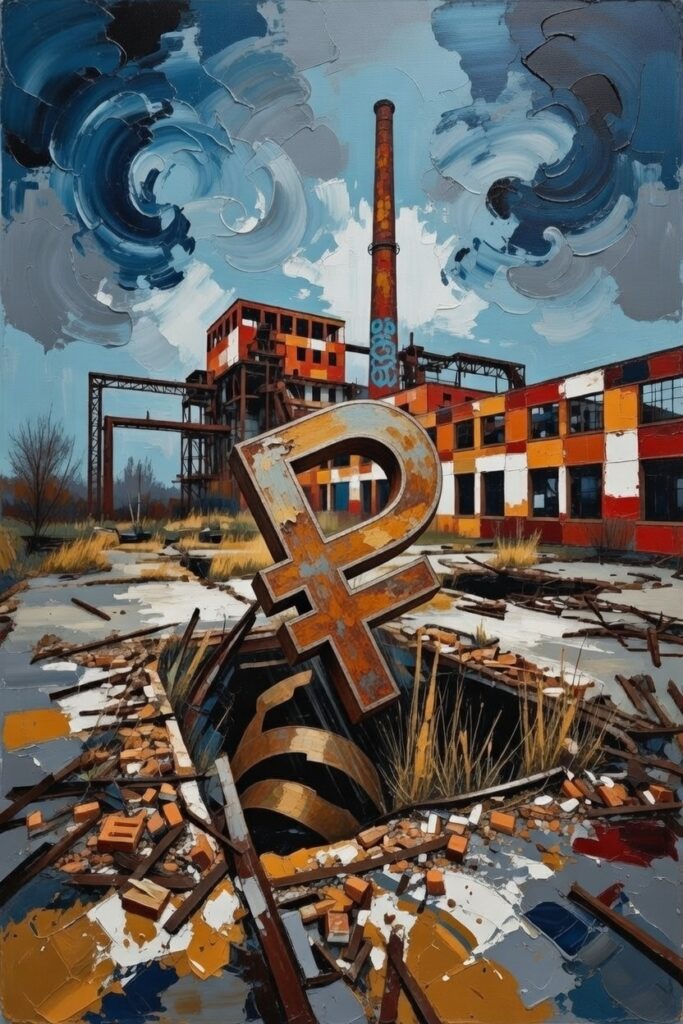A few days after the BRICS summit, which was supposed to demonstrate to the West the many achievements and successes of Russia and Putin personally in estalishing close ties with the countries of the so-called «Global South», the Russian president launched a drill of nuclear forces. It can be called the second part of the performance that Putin is putting on for the US and Europe on the eve of the American elections. The first act — the BRICS summit — showed that the leaders of major countries (China, India, South Africa) were willing to maintain relations with Putin and even visit his country. The picture was clear: no matter how hard the West tries to isolate it, Russia is surrounded by friends and far from isolated. Putin has managed to achieve this bare-bones agenda, although he failed to achieve his other goals, for example, the establishment of the BRICS payment system or the expansion of the organisation. The second act of the performance was the nuclear drill: Russia flexed its nuclear muscle, demonstrating its greatest strength and weapons. On the eve of the US elections, which are important for the Western world, the Kremlin is trying to intimidate its geopolitical opponents in order to indirectly influence the outcome of the vote. Thanks to this two-part performance, Russia is supposed to appear as a strong player to be reckoned with, to be feared, but also to be cooperated with for pragmatic purposes. Nuclear weapons serve as the final argument in this peculiar attempt to challenge the West to engage in a dialogue.
On the day of the nuclear drill, the Higher School of Economics released a report entitled «From Deterrence to Intimidation: Nuclear Weapons, Geopolitics, Coalition Strategy». Since the outbreak of a full-scale war against Ukraine one of the report’s authors, Sergey Karaganov, has been saying that the limited use of nuclear weapons could save the world from the outbreak of a global nuclear war. In his paper, Karaganov argued that the possibility of Russia using nuclear weapons «will force the United States and then the Europeans to abandon their support for Ukraine in the current conflict.»
Putin’s nuclear drills are evidence of the likelihood of such an eventuality. In the view of Russia’s top leadership, nuclear threats could facilitate peace agreements with Ukraine on Russia’s terms. The opportunity to negotiate serves the Kremlin well. So far, the Russian army is advancing in Donbas, but its manpower is exhausted and the authorities are reluctant to launch a new wave of mobilization.
Retiring from a trade union
Mikhail Shmakov, head of the Federation of Independent Trade Unions of Russia (FNPR), who had held his office since 1993 and was considered one of the last remaining heavyweights from the 1990s left on the political Olympus, resigned this week. Shmakov was given the compensatory post of the «president» of the FNPR, and his deputy Sergey Chernogaev became chairman of the Federation. Only a few months ago, Mikhail Shmakov was reapproved by the trade union congress on his job. On the eve of his resignation, Telegram channels began attacking the now former chairman and insinuating that he had violated the law when privatizing trade union assets in his favour. Shmakov himself denied the allegations, and it was clear from Vladimir Putin’s behavior at the meeting where the change of chairman took place that the president is rather fond of Shmakov.
The most interesting thing about the replacement of Shmakov by Chernogaev is that this event did not become the main news item on the political agenda, even for a short time. It faded into the background and was almost immediately forgotten. Yet, in the 1990s the trade unions were a serious force that could cause the Kremlin big problems in the form of strikes and rallies, and therefore the country’s top leadership had to reckon with them. In such circumstances, the country’s trade union leader became an important figure. He remained such a figure even during the establishment of the power vertical — in the noughties the Kremlin wanted to control all spheres of political and public life, and trade unions were an important part of both. That is why Shmakov, who proved willing to give up some of his trade union freedoms to the presidential administration, was favoured by the Kremlin. Vladimir Putin met with him, as did Dmitry Medvedev, who replaced Putin at the time. Trade unions were allowed to hold demonstrations on 1 May, and the authorities mobilized public sector workers and students to join the marching trade union members. Over time, the role of the FNPR became increasingly symbolic — read, decorative. During the Bolotnaya square protests and the attempts to create the All-Russian Popular Front, the presidential administration again turned its attention to the official trade unions.
The Kremlin wanted to pit workers and grassroots activists against the creative class, which at the time was widely regarded as the driver of the protests. On 1 May 2012, Putin and Medvedev had a beer with Mikhail Shmakov after a trade union demonstration. At that time, influential public politicians — for example, the prominent «United Russia» party trade unionist Andrey Isayev -began to take an interest in the FNPR head’s job.
Gradually, the Kremlin stopped toying with the People’s Front, and in 2016 its chief ideologue, Vyacheslav Volodin, left the presidential administration to become the chairperson the State Duma. Trade unions have been pushed to the margins of the political process. In the most problematic sectors (dockers, doctors, teachers, air traffic controllers), organisations independent of the FNPR began to appear. The Kremlin, which became preoccupied with personnel contests and the promotion of young technocrats, became uninterested in the official trade union — by then, the nuts and bolts of the vertical had already been fully tightened. It was with the onset of Russia’s full-scale war against Ukraine that the FNPR finally fell to the periphery of public and governmental attention. That is why Shmakov’s replacement caused minimal interest in the news and elite agenda. His successor was not a political heavyweight, but a little-known bureaucrat and former Russian Railways employee Sergey Chernogaev. Prominent players are not interested in the FNPR in its current state; it is a vestige of previous eras, which the Kremlin does not risk abolishing because of the conservative sentiments of the country’s top leadership.
Vologda Trickster
The governor of Vologda, Georgy Filimonov, has become a recurring protagonist in the political news. First, he became famous for criticising his subordinates, whom he forced to do push-ups and speak English. Then the head of the region went into high gear and began to generate newsworthy scandalous content 24/7. For example, he showed his office adorned with portraits of Joseph Stalin and Mao. At his inauguration, he came out on stage to the song «Sky of the Slavs» performed by the band «Alisa». The head of the region does not hide the fact that he is fond of the ideas of The Slavic Native Faith, commonly known as Rodnovery and sometimes as Slavic Neopaganism. Georgy Filimonov bans the sale of alcohol in his region and butted heads with the largest company in Vologda, SEVERSTAL. The governor did not appoint SEVERSTAL’s representative, former regional head Oleg Kuvshinnikov, as a senator, although he was in the senatorial «troika» or «trio» (each gubernatorial candidate is expected to make a list of three potential senators from the executive branch of his or her region to be delegated to the Federation Council after the elections) and the Kremlin had agreed to his inclusion on the list. Filimonov, not unlike Ramzan Kadyrov, is playing hardball. The Kremlin has already begun to criticize his ideas, albeit cautiously.
Filimonov attracts attention, stays true to Moscow’s agenda and can win Putin’s favour with his eccentric public image. On the other hand, the governor’s efforts show that he has no such favour. Rumours about his affiliation to one group or another (probably spread by Filimonov’s own team) appear on Telegram channels and are quickly refuted. The head of the Vologda region has become a trickster within the system: he has surrounded himself with myths and rumours, which so far have served as a good fence to protect him from the counter-attacks of his detractors.
The emergence of such characters with a defiant style of behaviour, which was previously unwelcome among officials, is yet another evidence of the unstability of the power vertical, which has begun to be torn apart by conflicts between influential groups. In such a situation, the boldest actors can test the limits of the system.










